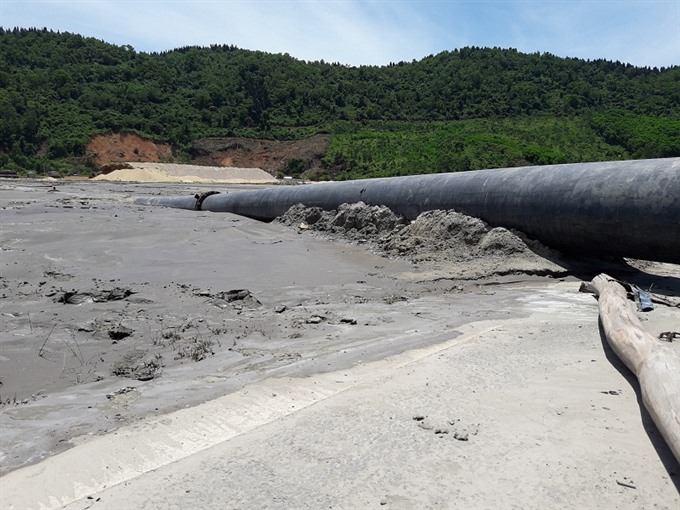 Society
Society

The country currently allows offshore disposal of dredged material and waste from three to six nautical miles from land.
 |
| Waste mud dredged at Chân Mây Port. — Photo baoxaydung.com |
HÀ NỘI — Việt Nam’s laws on waste disposal at sea put the marine ecosystem, aquatic resources and people’s livelihoods under severe threat, according to experts.
The country currently allows offshore disposal of dredged material and waste from three to six nautical miles from land.
Việt Nam, therefore, needs complete mechanisms on dredging and waste dumping activities to protect the environment, experts recommend.
Nguyễn Văn Cấn, head of Hải Phòng City’s Agency of Seas and Islands, said provincial and city authorities should hold the power to issue waste dumping permits.
Hải Phòng has about 3 million cu.m of dredged waste waiting for dumping and city authorities want to dump it inland.
He recommended collecting dumping fees to fund sea protecting activities.
Tạ Đình Thi, head of Việt Nam Administration of Seas and Islands (VASI) also stressed the need to revise Decree No 51 on dumping permits.
A total 24 of 28 coastal cities and provinces have issued regulations on the right to use sea areas. Some localities even apply fees for exploiting and using marine resources in areas under their management.
However, according to Nguyễn Thanh Tùng, head of Policy and Legal Department under VASI, there is a lack of regulations regarding waste dumping, sea encroachment and sea environment monitoring.
Additionally, some regulations on coastal protection corridor, certification of dumping permits and high risk areas for sea environmental pollution have legalised for the first time, creating disputes when implemented.
VASI worked with other agencies to develop the 2015 Law on Sea and Island Natural Resources which regulates dumping processes, waste permitted to be dumped and the responsibilities of organisations and individuals in charge of disposal.
At present, the administration is developing technical guidance on offshore disposal of waste and environmental impact assessment.
Some have recommended dredged waste be used as levelling and building materials instead of disposed at sea.
According to Tùng, Việt Nam’s regulations on sea disposal of dredged materials and waste follow the London Convention on the prevention of marine pollution by dumping of wastes and other matters.
Early this month, Thừa Thiên – Huế Province refused a request from Hào Hưng Huế Company - the Chân Mây Port project investo - to dump 700,000cu.m of mud waste 3km offshore.
Vĩnh Tân Thermal Power Plant No 1 in the southern central province of Bình Thuận also completed dredging and burying one million cu.m of waste mud at Vĩnh Tân Port instead of dumping it at sea. — VNS




